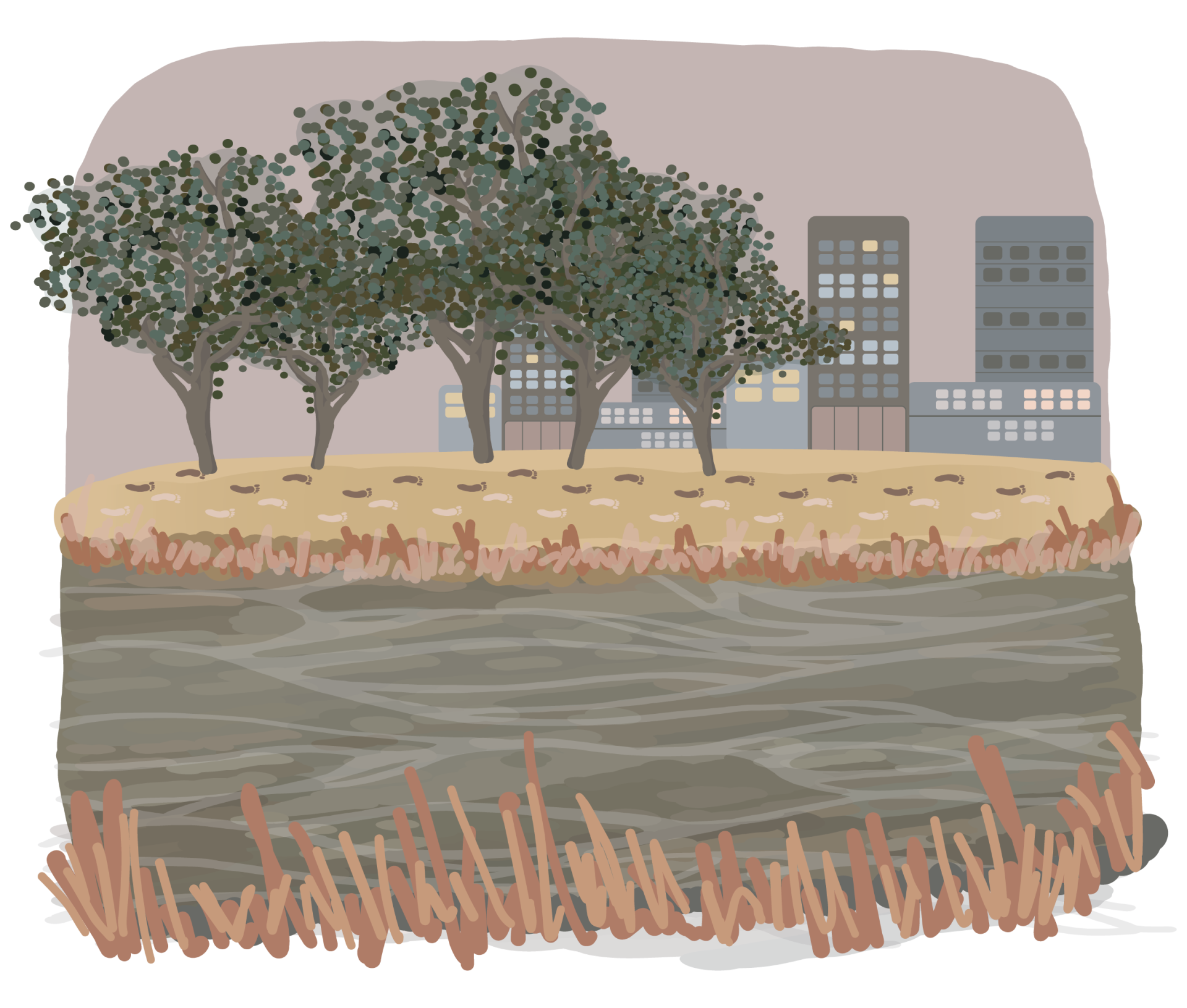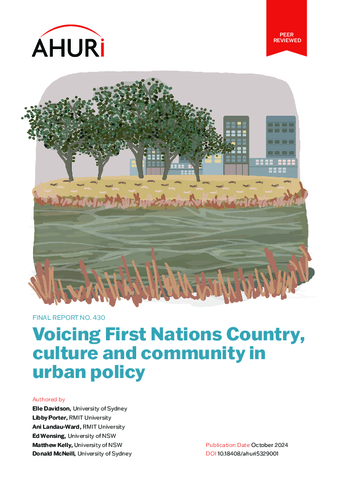Current approaches to engaging First Nations peoples in urban policy and planning are placing an unreasonable and unsustainable burden, especially on Traditional Custodians, new AHURI research finds. A change of relationship with Traditional Custodians and a rethinking of current engagement approaches could create a more responsible process.
The research, ‘Voicing First Nations Country, culture and community in urban policy’, undertaken for AHURI by researchers from University of Sydney, RMIT University and University of NSW, examines the relationship of First Nations peoples in Australia to urban policy, and is designed to centre First Nations sovereignty, authority, knowledge, governance and agency as the starting point toward a more responsible relationship.
Urban places, from large metropolitan areas to small towns in regional areas, are sites of intensive dispossession at the same time as being dense networks of community and ongoing cultural practice and connection. Nevertheless, urbanisation and the density of population settlement, private property and the miasma of legislation, policy and regulation imposed on Country hasn’t destroyed First Nations Traditional Custodians connection to ancestral lands or their cultural obligations and rights to lands and waters.
Governments are asking local planners and developers to consult with First Nation Traditional Custodians with some level of engagement. This has the effect of intensifying pressure on Custodians, with short timeframes and often unrealistic expectations imposed upon First Nations communities.
Urban policy planning can be a tool for healing and repair between First Nations people and the broader Australian community. Engagement can be used to create new opportunities—but current engagement approaches require rethinking and need to include building longer term relationships, long before a project requires engagement. Building and sustaining relationships and creating new processes and models must be supported with resources structures that are secure, ongoing and transcend piecemeal project-by-project funding.


